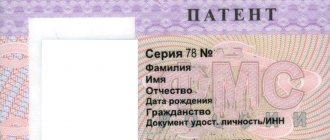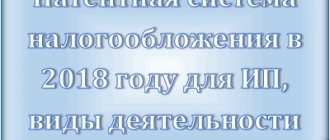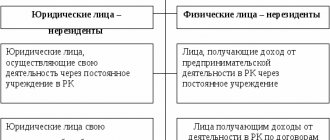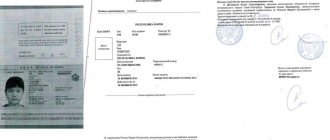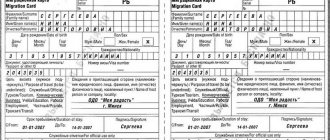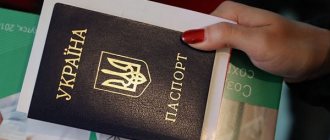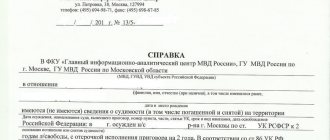How to find work in Russia for foreigners
Replenishment of personnel through migrants is becoming commonplace, although it is clear that foreign citizens, being outside their country, represent a socially unprotected group of people. Migration legislation is strictly selective in its approach to the employment of foreigners, and this feature must be taken into account before undertaking a move.
The procedure for registering foreign citizens for work requires compliance with the rules established within the state. The question concerns two sides:
- on the one hand, the participant in the process is a foreigner planning to officially find employment in a foreign country;
- on the other hand, an employer who decides to hire a foreign citizen.
Both parties need to go through the procedures without violating the law of the Russian Federation. However, not all visiting citizens like to pay taxes.
Not all employers are ready to make financial contributions to certain funds established by law. They ignore the complicated registration procedure provided for by the Labor Code of the Russian Federation. This is where illegal work comes from.
Work permit
Simultaneously with the application for issuing an invitation, the employer can send to the Department of Internal Affairs of the Ministry of Internal Affairs the documents necessary to issue a work permit for each foreign worker. To do this, you will need to write an application and attach the following documents to it:
- a copy of the identity document of the foreign citizen;
- documents confirming that the foreign employee does not have drug addiction and pose a danger to others from infectious diseases;
- certificate confirming that the foreigner does not have a disease caused by the human immunodeficiency virus (HIV infection);
- personal color photograph of a foreign citizen measuring 30 x 40 mm.
For issuing a work permit to foreign citizens, a state fee of 3,500 rubles is paid for each employee (clause 24, clause 1, article 333.28 of the Tax Code of the Russian Federation).
A work permit for each foreign worker is issued to the employer simultaneously with an invitation to the Russian Federation for the purpose of carrying out work activities. The received invitations are sent to foreign workers to obtain visas.
Where foreigners are not allowed to work
The legislation of the Russian Federation provides for restrictions on the opportunities for foreign citizens to obtain work. Migrants, in accordance with Article 14 of Federal Law No. 115, are not allowed to work in the following areas:
- engage in activities in local government bodies;
- occupy command positions on merchant and military ships, on space and experimental aircraft, in civil aviation;
- you cannot work in the state security structure of the Russian Federation;
- in the Armed Forces of the Russian Federation, in combat and administrative-economic formations;
- at facilities related to the protection of state secrets, in government agencies and special forces, where data from the spectrum of state secrets is used;
- in organizations related to nuclear weapons, production areas with radiation hazardous substances;
- it is prohibited to manage organizations with an authorized capital of more than 50% of the shares of the Russian Federation;
- You cannot work in retail organizations selling medical goods, alcoholic beverages, or selling in tents or markets according to OKVED.
The procedure for pre-trial (out-of-court) appeal of decisions, actions (inaction) of officials responsible for the provision of public services
The applicant has the right to file a complaint against the decision and (or) action (inaction) of officials of the Main Directorate for Migration of the Ministry of Internal Affairs of Russia, migration departments in the provision of public services, including in the following cases:
1. Violation of the deadline for registering the applicant’s request for the provision of a public service.
2. Violation of the deadline for the provision of public services.
3. The requirement for the applicant to submit documents not provided for by the regulatory legal acts of the Russian Federation for the provision of public services.
4. Refusal to accept documents, the submission of which is provided for by the regulatory legal acts of the Russian Federation for the provision of public services.
5. Refusal to provide a public service, if the grounds for refusal are not provided for by federal laws and other regulatory legal acts of the Russian Federation adopted in accordance with them.
6. The requirement for the applicant to pay a fee when providing a public service that is not provided for by the regulatory legal acts of the Russian Federation.
7. Refusal of the migration department providing a public service or its official to correct typos and errors in documents issued as a result of the provision of a public service or violation of the established deadline for such corrections.
The complaint must contain:
1. The name of the territorial body of the Ministry of Internal Affairs of Russia at the regional or district level, providing a public service, or the surname, initials, special rank (class rank) of the official whose decisions and actions (inaction) are being appealed.
2. Information about the surname, name, patronymic of the applicant (for a legal entity - name), location of the applicant, as well as contact telephone number(s), email address(es) (if available) and postal address to which the response should be sent citizen.
3. Information about the appealed decisions and actions (inaction) of officials of migration departments providing public services.
4. Arguments on the basis of which the applicant does not agree with the decision and action (inaction) of officials of migration departments providing public services.
The complaint is considered by the migration department providing a public service, the procedure for providing which was violated as a result of decisions, actions (inaction) of these departments or their officials.
If the decisions of the head or deputy head of a migration unit providing a public service are appealed, the complaint is considered by a senior official of the relevant territorial body of the Ministry of Internal Affairs of Russia at the regional or district level.
The complaint can be addressed to:
1. For decisions made by divisions on migration issues at the district level - to the head of the territorial body of the Ministry of Internal Affairs of Russia at the district level or to the corresponding territorial body of the Ministry of Internal Affairs of Russia at the regional level.
2. For decisions made by divisions on migration issues at the regional level - to the head of the territorial body of the Ministry of Internal Affairs of Russia at the regional level.
3. On decisions made by the structural unit on migration issues of the Main Directorate for Migration of the Ministry of Internal Affairs of Russia - to the head of the Main Directorate for Migration Affairs of the Ministry of Internal Affairs of Russia.
4. For decisions made by the heads of territorial bodies of the Ministry of Internal Affairs of Russia at the regional level, the representative office of the Ministry of Internal Affairs of Russia abroad, the leadership of the Main Directorate for Migration Affairs of the Ministry of Internal Affairs of Russia - the Minister of Internal Affairs of the Russian Federation or the Deputy Minister of Internal Affairs of the Russian Federation, who is responsible for the activities of the Main Directorate for Migration Affairs of the Ministry of Internal Affairs of Russia.
The complaint is submitted by the applicant in writing, including during a personal reception of the applicant, or electronically to the Main Migration Department of the Ministry of Internal Affairs of Russia or the migration unit or to the territorial body of the Ministry of Internal Affairs of Russia at the regional or district level.
If a complaint is filed in person, the applicant presents a document proving his identity in accordance with the legislation of the Russian Federation.
If the complaint is submitted through a representative of the applicant, a document confirming the authority to take actions on behalf of the applicant is also submitted.
When filing a complaint electronically, it must be signed with an electronic signature, in accordance with Decree of the Government of the Russian Federation dated June 25, 2012 No. 634 “On the types of electronic signatures, the use of which is permitted when applying for state and municipal services.” In this case, no identification document of the applicant is required.
If the complaint is filed by the applicant with the Main Migration Department of the Ministry of Internal Affairs of Russia, a territorial body of the Ministry of Internal Affairs of Russia at the regional or district level, or to a migration unit whose competence does not include making a decision on the complaint, within 3 working days from the date of its registration, the Main Directorate of Migration Affairs of the Ministry of Internal Affairs of Russia, a territorial body of the Ministry of Internal Affairs of Russia at the regional or district level, or a division for migration issues forwards the complaint to the body authorized to consider it and informs the applicant in writing about the redirection of the complaint. In this case, the period for consideration of the complaint is calculated from the date of registration of the complaint with the body authorized to consider it.
If, during or as a result of consideration of the complaint, signs of an administrative offense under Article 5.63
Code of the Russian Federation on Administrative Offenses, or signs of a crime, the official authorized to consider complaints immediately sends the relevant materials to the prosecutor's office.
In electronic form, a complaint can be submitted by the applicant through the Unified Portal of State and Municipal Services, the official website of the Ministry of Internal Affairs of Russia, the portal of the federal state information system, which ensures the process of pre-trial (extrajudicial) appeal of decisions and actions (inaction) committed in the provision of state and municipal services online Internet.
A complaint received by the Main Directorate of Migration Affairs of the Ministry of Internal Affairs of Russia, a territorial body of the Ministry of Internal Affairs of Russia at the regional or district level, or the relevant unit on migration issues is subject to consideration by an official authorized to consider complaints within 15 working days from the date of its registration, and in the event of an appeal refusal of the migration department or official to accept documents from the applicant or to correct typos and errors, or in the event of an appeal against the violation of the established deadline for such corrections - within 5 working days from the date of its registration.
Based on the results of consideration of the complaint, one of the following decisions is made:
1. To satisfy the complaint in whole or in part.
2. On refusal to satisfy the complaint.
The grounds for refusing to satisfy a complaint are:
1. The presence of a court or arbitration court decision that has entered into legal force on a complaint about the same subject and on the same grounds.
2. Filing a complaint by a person whose powers have not been confirmed in the manner established by the legislation of the Russian Federation.
3. The presence of a decision on the complaint made earlier in relation to the same applicant and on the same subject of the complaint.
The body authorized to consider the complaint has the right to leave the complaint unanswered in the following cases:
1. The presence in the complaint of obscene or offensive language, threats to the life, health and property of the official, as well as members of his family.
2. Inability to read any part of the text of the complaint, last name, first name, patronymic (if any) and (or) postal address of the citizen indicated in the complaint.
The procedure for informing the applicant about the results of consideration of the complaint
No later than the day following the day the decision on the complaint is made, the applicant is sent a reasoned response in writing and, at the applicant’s request, in electronic form on the results of consideration of the complaint.
The response based on the results of consideration of the complaint shall indicate:
1. The name of the state body providing the public service that examined the complaint, position, surname, first name, patronymic (last if available) of the official who made the decision on the complaint.
2. Number, date, place of the decision, including information about the official whose decision or action (inaction) is being appealed.
3. Last name, first name, patronymic (if any) or name of the applicant.
4. Grounds for making a decision on the complaint.
5. Decision taken on the complaint.
6. If the complaint is found to be justified, the deadline for eliminating the identified violations, including the deadline for providing the result of the public service.
7. Information on the procedure for appealing a decision made on a complaint.
The applicant has the right to appeal a decision on a complaint made by an official in the manner established by the legislation of the Russian Federation.
The applicant has the right to receive information and documents necessary to substantiate and consider the complaint.
The applicant may submit documents (if any) confirming the applicant’s arguments, or copies thereof.
Foreigner status
In Russia, the stay, life and work of foreign citizens are regulated by migration laws. The legislation is based on the civil status or status of foreigners. Determination of status is related to the registration of a person, tax deductions, the amount of insurance payments to the Pension Fund of the Russian Federation, and contributions for health and social insurance.
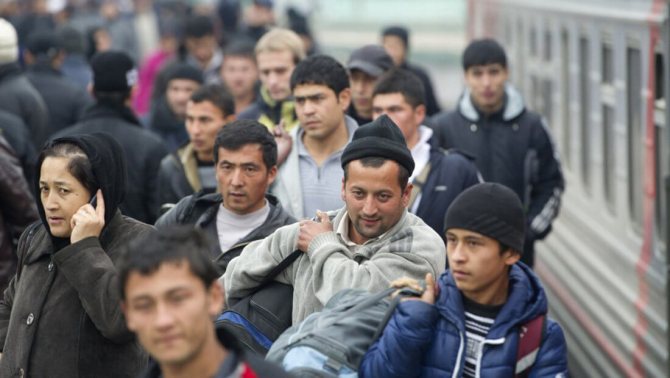
The law approves 3 statuses:
- One of them provides for permanent residence under a special document called a residence permit (RP).
- The other two correspond to temporary residence:
- followed by obtaining a residence permit;
- stay of a foreigner in a temporary regime - the basis is a visa, for citizens of the CIS - a visa-free procedure with a migration card.
Registration of labor relations with foreigners
After foreign workers have entered the territory of the Russian Federation, you can begin to formalize contractual relations with them. The foreigner must provide the employer with the following documents (Article 65 and Article 327.3 of the Labor Code of the Russian Federation):
- identification document;
- employment history;
- voluntary health insurance agreement (policy);
- work permit (can be issued by the employer himself) or patent;
- temporary residence permit or residence permit (only when concluding an employment contract with foreigners permanently residing in the Russian Federation).
When concluding an employment contract, a foreign citizen does not present military registration documents to the employer.
The employment contract with a foreigner itself contains information about a work permit or patent, temporary residence permit or residence permit.
Mandatory for temporarily residing foreigners is a condition on the grounds for providing medical assistance to a foreign worker during the term of the employment contract. To do this, the contract must indicate the details of a voluntary health insurance policy or an agreement concluded by the employer on the provision of paid medical services to such an employee.
The voluntary health insurance policy must ensure the provision of emergency primary and specialized medical care to a foreign employee (Article 327.2 of the Labor Code of the Russian Federation).
Employment in a visa-free regime
A visa-free regime for relations between countries allows their residents to enter the territory without obtaining a visa. The arrangement is convenient for both the potential employee and the employer. The absence of restrictions makes it easier to conduct business relationships.
The employer is required to:
- Regular verification of the validity period of the employee’s document (residence permit).
- Inform the local branch of the Russian Ministry of Internal Affairs that, on the basis of the contract, an employment relationship has been established with a citizen of foreign origin.
Attention managers! When accepting migrants with any status (according to the Federal Law, clause 8, article 13), it is necessary to inform the Ministry of Internal Affairs.
A citizen of another country who has a temporary residence permit in Russia (a status close to a residence permit) gets a job in the Russian Federation. Every year he will have to confirm it with the migration service.
Legal employment of foreign workers with the status of temporarily staying in Russia in accordance with paragraph 1 of Art. 2 of the Law on the legal status will depend on visa relations between countries.
Permission to attract foreign workers
In order to be able to hire foreigners, the employer must obtain permission to attract and use foreign workers (Clause 4, Article 13 of the Federal Law of July 25, 2002 No. 115-FZ “On the legal status of foreign citizens in the Russian Federation”).
A permit is not required when employing foreign workers who:
- arrived in the Russian Federation in a manner that does not require a visa;
- are highly qualified specialists or family members of a highly qualified specialist;
- are citizens of the EAEU member countries;
- study in the Russian Federation full-time in a professional educational organization.
To obtain permission, the employer must send to the Department of Migration of the Ministry of Internal Affairs of Russia (Territorial Directorate for Migration Issues) an application in the form approved. by order of the Ministry of Internal Affairs of Russia dated June 19, 2017 No. 392.
Cheat sheet on the article from the editors of BUKH.1S for those who do not have time
1. To be able to hire “visa” foreigners, the company must obtain permission to attract and use foreign workers.
2. To employ “visa” foreigners, you need to obtain an invitation from the Department of Internal Affairs of the Ministry of Internal Affairs to allow foreign workers to enter the Russian Federation to carry out work activities. This invitation is necessary for foreigners so that they can obtain a single-entry visa to enter and exit Russia.
3. Employers are required to inform the Russian Ministry of Internal Affairs about the conclusion and termination of employment contracts with foreign citizens and stateless persons. The same applies to civil contracts for the performance of work (provision of services).
4. In order to register a foreign worker with migration registration, the employer (if he is the receiving party and the foreigner actually lives at the address of the legal entity or in premises rented by him) must notify the Ministry of Internal Affairs of his arrival in Russia.
5. Employers are responsible for removing foreign workers from migration registration. To deregister a foreigner, it is necessary to notify the Department of Internal Affairs of the Ministry of Internal Affairs about his departure from his place of stay.
6. Administrative liability has been established for the illegal involvement of foreign citizens in labor activities.
The procedure for submitting an application and issuing a permit is established by Order of the Ministry of Internal Affairs of Russia dated November 1, 2017 No. 827.
The official who accepted the application for consideration enters information about the acceptance of documents into the information system of the Ministry of Internal Affairs of Russia. The applicant is issued a certificate confirming acceptance of the application for consideration.
The decision to issue an employer a permit to hire foreign workers is made within 30 calendar days from the date of receipt of the documents. Permission to attract foreign workers is issued for a period of one year.
For issuing a permit to attract and use foreign workers, a state fee of 10,000 rubles is paid for each foreign worker attracted (clause 23, clause 1, article 333.28 of the Tax Code of the Russian Federation).
Patent for work
People come to the Russian Federation with the hope of finding a decent job and a comfortable life. Changes are taking place in the legal acts of the Russian Federation regarding visa-free migrants, and additions are being made.
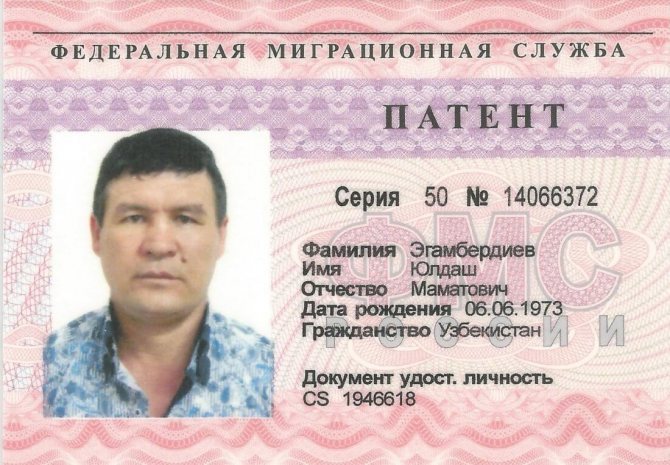
In legislation relating to migration, there is the term patent, meaning a permitting document (certificate). Having received the certificate, a foreigner simultaneously gets the opportunity to stay in the Russian Federation without a visa and work here.
No patent required:
- People who migrated to Russia with temporary registration and residence permits.
- Persons who took part in the state resettlement program on a voluntary basis.
- Citizens of Belarus and Kazakhstan.
- For displaced people.
- Employees of diplomatic missions operating in the Russian Federation.
- Representatives of foreign companies involved in the installation of technical equipment in Russia.
- For media workers working in the Russian Federation in the direction of foreign countries.
- Students engaged in labor activities during the holidays.
- Representatives of science and education who arrived at the invitation of the Russian Federation.
The state calculates the number of patents that it can implement; their number is limited. Quotas are updated annually.
A patent is issued on the basis of certificates, certificates (documentation), including:
- results of a medical examination on suitability for work;
- final indicators of tests for language knowledge, knowledge of the basics of the Russian legislative framework;
- insurance policy for an annual period;
- a check for making a monthly advance payment for personal income tax (the amount of tax corresponds to the region of employment);
- a foreign passport accompanied by a translation certified by a notary;
- handprint identification document;
- photos;
- application for a certificate.
Attention! A patent is required for visa-free foreigners with temporary residence. Persons with temporary or permanent residence status are not required to obtain a patent.
The certificate has an expiration date. It is valid for a period of time from 1 month to 1 year.
Notice of employment of a foreign worker
Employers are required to inform the Russian Ministry of Internal Affairs about the conclusion and termination of employment contracts with foreign citizens and stateless persons. The same applies to civil contracts for the performance of work (provision of services). This obligation is established in accordance with clause 8 of Art. 13 of the Federal Law of July 25, 2002 No. 115-FZ.
To inform about the facts of employment of foreigners, a corresponding notification is submitted to the Department of Internal Affairs of the Ministry of Internal Affairs of Russia. The current notification form is approved. by order of the Ministry of Internal Affairs of Russia dated 06/04/2019 No. 363 (until 09/09/2019 the order of the Ministry of Internal Affairs of Russia dated 01/10/2018 No. 11 was in force, approving similar forms), Appendix No. 13.
The notification contains information about each foreign worker with whom the employer has concluded or terminated an agreement for the performance of work (rendering services). All relevant fields must be completed in the notification.
The notification is submitted no later than 3 business days from the date of conclusion or termination (termination) of the relevant agreement. It can be sent:
- on paper directly to the Department of Internal Affairs of the Ministry of Internal Affairs;
- by post with a description of the contents and notification of delivery;
- in electronic form through the government services portal.
In the first two cases, the employer is issued a certificate confirming receipt of the notification. When a notification is received in electronic form, an electronic message indicating receipt of the notification is issued. The deadline for notification is no later than the business day following the day the notification is received.
Within two months from the date of issue of the patent, a “visa-free” foreigner hired must provide the territorial body of the Ministry of Internal Affairs of Russia with a copy of the employment contract (clause 7 of Article 13.3 of Law No. 115-FZ).
The procedure for employing foreigners
Legal employment is possible if you have the necessary documents:
- A foreign passport, which must be obtained before departure. You will need it when crossing the border.
- Migration card with a note about the purpose of arrival. The card is issued at the border. Border service officers will help you fill it out.
- Medical insurance for foreigners received on the day of arrival in the Russian Federation.
- Migration registration in the form of temporary registration.
- Patent for obtaining a workplace. In the future, it is planned to make regular payments for the use of the patent.
- Papers about official employment. With a patent in hand, within 2 months you need to find an employer, conclude an employment agreement with him and submit a copy to the FMS (migration service).
You need to be prepared for the costs associated with tax payments and payment of state duties. All the troubles and costs are paid off by legal work in the Russian Federation for a year without the danger of being evicted or fined.
Attention! You shouldn't skimp on safety. The money spent in the process of obtaining the necessary documentation will be returned in the course of quiet work on a legal basis.
List of documentation
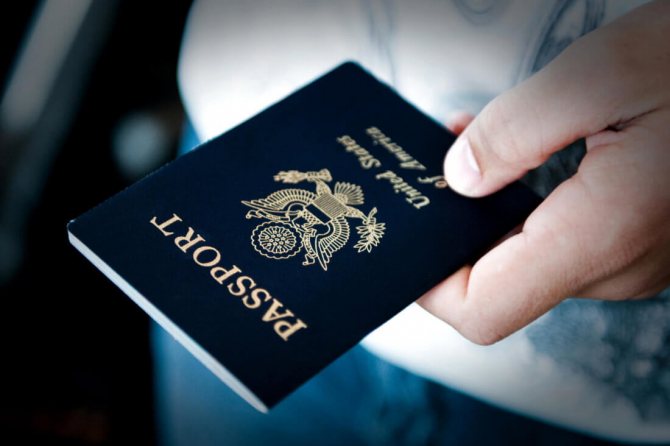
To employ a foreigner, the following documents will be required:
- application in 2 copies;
- passport of a standard recognized in the Russian Federation;
- migration card indicating the purpose of arrival “work”;
- medical policy or agreement with a medical organization on paid services for the duration of work;
- a certificate issued by a medical institution confirming that the citizen does not have drug addiction, HIV infection or other dangerous diseases;
- certificate of training in Russian language courses, completion of the fundamentals of jurisprudence and history of the Russian state;
- temporary registration coupon;
- a patent recording data on the presence of a profession or types of active activity.
Foreign student
An educational institution can act as a party accepting foreigners for study. You can obtain permission from the Federal MP of the Russian Federation. The purpose of arrival is indicated in the application. The following must be presented to the relevant departments related to the movement of foreigners in Russia:
- Application.
- A copy of the foreigner's identity card.
- Guarantee to ensure material, medical, housing conditions.
- An invited citizen, a national of another state for the duration of his residence in the Russian Federation.
The student is registered with the Federal Migration Service based on the notification he received from the inviting party. The university administration will inform the educational authorities about his arrival in the next 3 days.

In case of unauthorized departure of a student from an educational institution, the university is obliged to notify:
- apparatus in charge of education;
- migration structures;
- security authorities.
The educational institution is obliged to renew the visa. If an educational institution violates the rules and obligations assumed, then liability will arise according to the law in the form of fines (up to half a million rubles).
For foreign students, a place in the dormitory is provided at the rate of 6 sq.m per person. Training is financed from the state budget of the Russian Federation. Students are paid a stipend.
The country has approved training quotas on a budget basis (no more than 10,000 people annually).
Important! The cost of utilities, household services, and accommodation should be no more than 5% of the scholarship amount.
Quotas
Immigration policy applies quotas, that is, a projected acceptable rate or share of participation in the labor market of foreign labor. Employers often resort to using foreign labor. This happens for various reasons:
- For the cost of services.
- By skill level.
The hiring of workers from abroad is subject to strict quotas.
In practice, several types are used:
- Employers who hire foreign specialists into their workforce receive a quota;
- quota for temporary registration gives advantages in getting a job without special permits;
- the issuance of jobs is normalized in order to protect the labor market within the country;
- there are quotas for issuing invitations to obtain a visa;
- There are quotas for students who want to have a Russian diploma and study on a budgetary basis.
